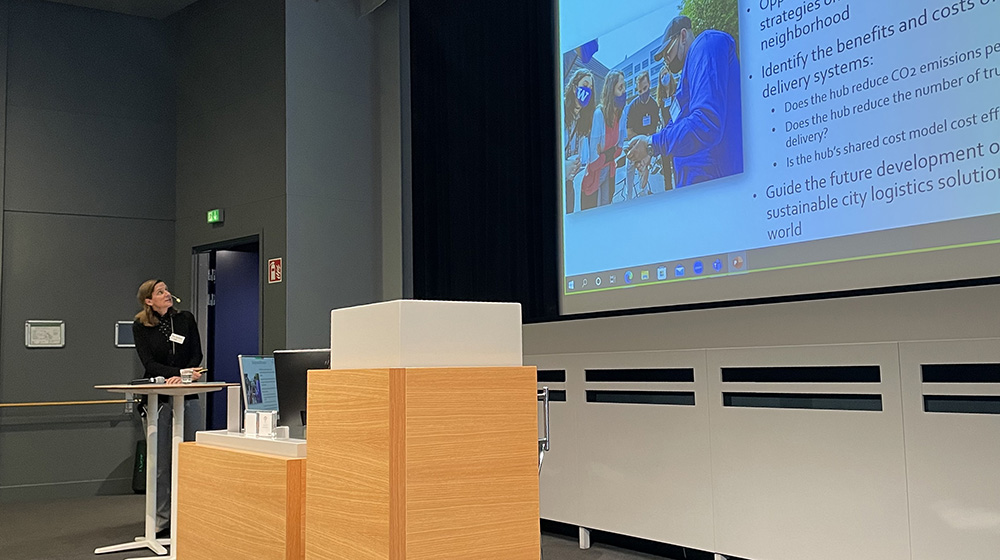HITS renewed for phase two

Last week the project kicked off its second phase. HITS 2024 now aims to continue to build knowledge and experience needed to develop the freight transportation system of the future.
As expectations surrounding freight transport in cities grows, new solutions and collaboration between different actors is needed to ensure a sustainable system. HITS 2024 is now confirmed to continue for two years to bring insight to these challenges.
The first phase of HITS 2024 focused on exploratory research and knowledge building. The second phase will focus on creating prototyping and piloting identified concepts as well as building knowledge around them, and exploring and understanding new options.
The second phase of the project targets the following key topics a) how can freight flows be distributed in an efficient and sustainable way during off-peak by electrifying transport, digitalisation of services and system integration of different actors to enable data sharing; b) How can digitalization and data exchange enable interoperability and sustainability? c) How can collaboration between real estate owners, logistic companies and the city enable consolidation of goods to the city by dynamic and/or physical hubs? d) How can policies and dialogue with the end consumer develop incitements to more sustainable logistics; e) Could the transition towards seamless, sustainable and flexible goods delivery with autonomous vehicles and automated loading and unloading be done in a sustainable way?
The academic research team, coordinated by KTH/ITRL, consisting of five full-time researchers and one part-time coordinator, will work with the following research questions:
Systemic effects on societal levels
- How will the systemic effects change compared to today’s transport solutions and current traffic flows in chosen test areas?
- How will these systemic effects be impacted by different business models and policys?
Collaboration for transformation and innovation
- How can collaboration between different actors contribute to new innovations and sustainable transport solutions?
- How will this collaboration impact the different actors in the ecosystem regarding business models and creating new business value?
KPI/Efficiency improvements
- How simulation can show efficiency gains both from how logistic flows can be optimized at co-loading and different distribution scenarios/charging scenarios for vehicles as compared to societal- and business gains?
Vehicle innovation
- How vehicles through design and new technology can contribute to productive distribution, high security, and decreased environmental impact?
The consortia for phase 2 will consist of Scania, KTH, Stockholms Stad, Södertörns kommunerna, Urban Services, Fabege, Atrium Ljungberg, Ragn-Sells, HAVI, Axfood, M Logistics, CLOSER, IVL, SSPA (RISE).

